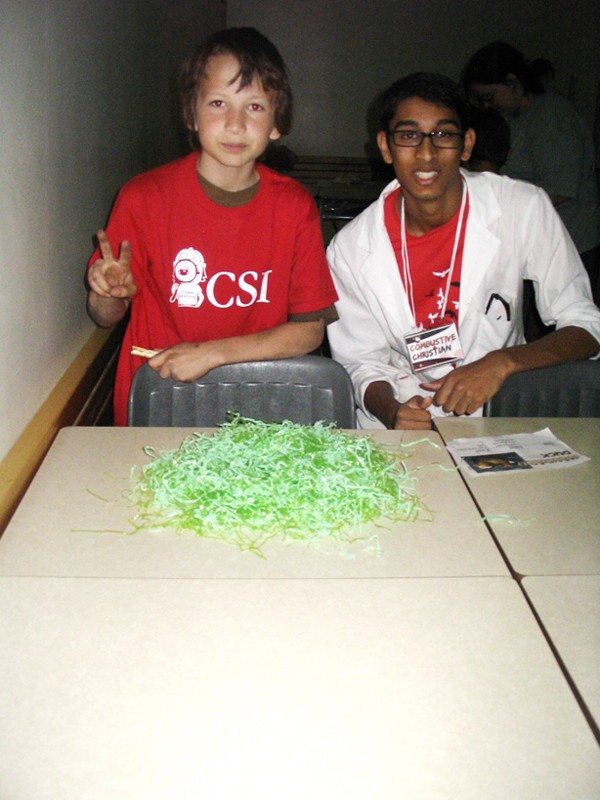Scientifically speaking
Science program allows students to interact with young learners
University of Winnipeg students are the youngest in Canada to be talking science with children in the community – not only teaching them science, but allowing them to get some hands-on experience with science experiments.
Let’s Talk Science (LTS) aims to get children involved in science at a young age. The University of Winnipeg is unique in that its LTS team of student co-ordinators and volunteers is comprised entirely of undergraduate students, providing experience in teaching and applying science earlier than other post-secondary students.
“It prepares students with presentation skills and the ability to simplify what they learn for a younger demographic,” said Brent Gali, student co-coordinator of U of W’s LTS program. “Some universities don’t even let undergrads volunteer.”
The LTS program has 110 volunteers this year. Incentives to participate in LTS include reference letters from the faculty co-ordinators as well as active participation in community learning – and of course, the warm feeling of positively impacting at-risk youth.
“You see the direct positive outcome from working with inner-city children in their desire to learn science,” said Kristin Kantautas, student co-coordinator of LTS.
“We focus on inner-city youth. Since we’re in the heart of the city, we can do the majority of the activities within the school,” said Gali.
Christian Nathan is a volunteer with the LTS program who first got to directly interact with the kids throughout the summer.
“The most popular [program] is forensic science,” Nathan said. “[The kids] get to see a chemical reaction and do an experiment. They get to feel a bit independent.”
LTS strives beyond presentations and experiments for children. It also provides a drop-in tutoring program in partnership with the Wii Chii Waa Ka Nak Learning Centre, where inner-city youth can get help with their science and math homework.
“There’s a real need for LTS programs like homework club,” said Kantautas.
“There are some kids who have come every day since we introduced it a few weeks ago,” said Gali.
The co-ordinators of LTS partner with educators in the community, ranging from community learning centers, such as Wii Chii Waa Ka Nak, to public schools.
“The public school partnerships allow us to run programs for all levels from [Kindergarten] to [Grade] 12.”
The range from early to later years has given LTS volunteers the experience of teaching a broad and diverse curriculum, along with the satisfaction of community outreach.
Published in Volume 64, Number 8 of The Uniter (October 22, 2009)







